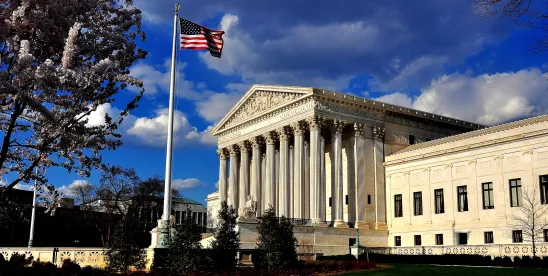On June 5, 2025, the Supreme Court of the United States unanimously held in Ames v. Ohio Department of Youth Services that the standard for establishing a Title VII claim is the same for all individuals, regardless of whether they belong to a majority or minority group. In doing so, the Court rejected the application of the “background circumstances” rule, which had previously required members of a majority group to meet a heightened evidentiary standard in Title VII cases.
Background
Marlean Ames, a heterosexual woman, has worked for the Ohio Department of Youth Services (“Department”) since 2004. In 2019, Ames interviewed for a management position with the Department, but the Department hired another candidate—a lesbian woman—instead. Shortly after, the Department demoted Ames from her role and later hired a gay man to fill that position. Ames filed suit, alleging that the Department’s decisions not to promote her and later to demote her were based on her sexual orientation.
The District Court granted summary judgment for the Department on Ames’s Title VII claim. Applying the traditional burden-shifting framework used in Title VII cases, the court held that Ames failed to establish a prima facie case showing that the Department acted with a discriminatory motive. Citing Sixth Circuit precedent, the court found that Ames did not provide evidence of “background circumstances” suggesting the Department discriminated against majority-group members. Under this rule, members of majority groups—including heterosexual plaintiffs—could not satisfy their evidentiary burden at the first stage of the framework without evidence, such as statistical data, suggesting that the employer was discriminating against the majority group. The Sixth Circuit affirmed the District Court’s ruling.
The Supreme Court granted certiorari to resolve a circuit split over whether majority-group plaintiffs face a different evidentiary burden under Title VII.
The Supreme Court’s Ruling
The Court held that the “background circumstances” rule is incompatible with both the text of Title VII and Court precedent. Title VII’s disparate treatment provision bars employers from intentionally discriminating against individuals on the basis of race, color, religion, sex, or national origin. The statute does not distinguish between majority- and minority-group plaintiffs. Instead, it focuses on addressing discrimination against individuals, not groups.
The Court further explained that its precedents have rejected any heightened evidentiary standard for majority-group plaintiffs, and that its previous decisions made clear that Title VII’s standard does not vary based on group membership. Moreover, the Court held that the “background circumstances” rule conflicted with the Supreme Court’s guidance that the prima facie standard should be applied the same in every case, and by requiring majority-group plaintiffs to produce additional evidence not required of minority-group plaintiffs, the “background circumstances” rule violated this directive.
The Court also rejected the Department’s argument that the “background circumstances” rule is simply another way of asking whether the facts suggest discrimination based on a protected characteristic. The Court clarified that the Department’s characterization did not align with the Sixth Circuit’s application of the rule.
Accordingly, the Court vacated the judgment against Ames and remanded the case for application of the proper prima facie standard.
Takeaways
The Court’s decision confirms that Title VII protects individuals, not groups, and that the same standard applies to all plaintiffs, regardless of their status as part of a majority or minority group. With an increasing number of discrimination claims brought by majority-group plaintiffs, employers should ensure that their policies and practices treat all protected individuals equally. Because Title VII is a federal statute, employers in all U.S. jurisdictions must comply with the Court’s ruling, even if some state or local laws permit preferential treatment for minority candidates.
*Sierra Miral is a summer associate in the firm’s Century City office.


 />i
/>i
